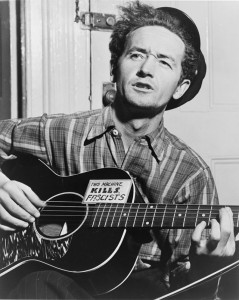Mission Week Expert Describes Progress and Problems on Global Water Issues
Great progress has been since 1990 in making clean water available to hundreds of millions of people, but there remains great need to extend that progress to hundreds of millions more, a leading figure in such efforts said Thursday at Marquette Law School.
As part of Mission Week at Marquette University, Vanessa Tobin spoke with Mike Gousha, the Law School’s distinguished fellow in law and public policy, in an “On the Issues with Mike Gousha” program. Tobin is senior technical advisor for water supply, sanitation, and water resources for Catholic Relief Services. She worked for 24 years for UNICEF on dealing with these needs and others around the world before joining Catholic Relief Services in December, 2011.
Tobin said that for people in nations such as the United States or her native England, “we take our hygiene and sanitation for granted. . . . These are luxuries in many countries.” For about 750 million people, primarily low-income residents of sub-Saharan Africa and parts of Asia, unpolluted water is not available and poor sanitary conditions affect the health of millions of people, particularly children five and under.


